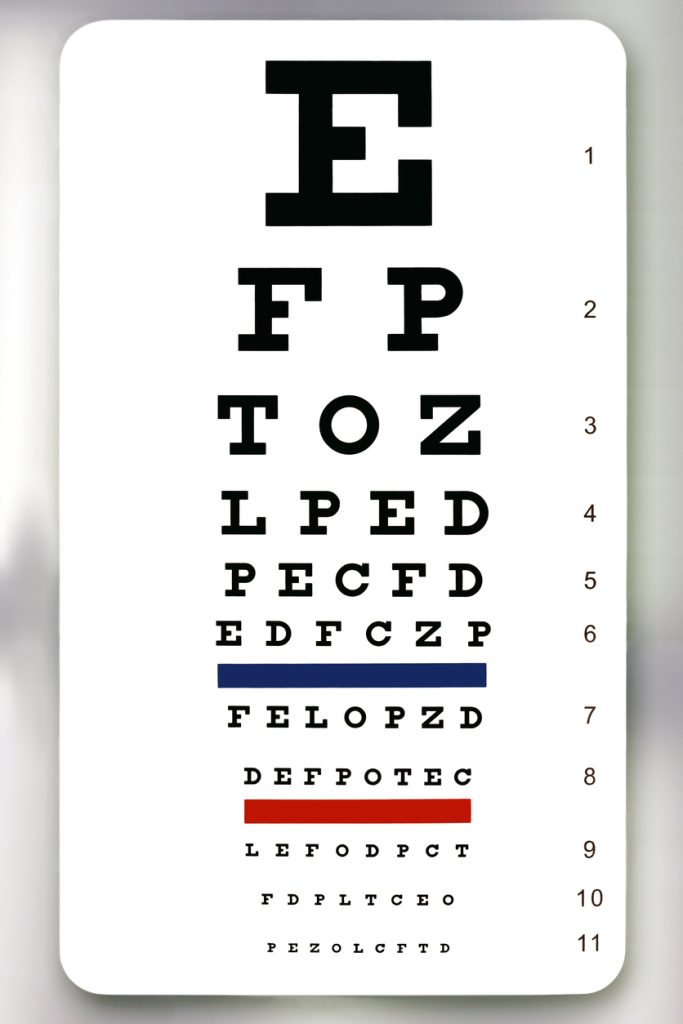By Dr. Kellye Knueppel

This post is sponsored by The Vision Therapy Center, which has offices in Brookfield, Fond du Lac, and Madison, Wisc.
Every autumn, a phenomenon can emerge after the first month or so of school: Children who have never struggled with schoolwork before will begin to perform poorly on tests and other assignments. They may even start displaying bad behavior in school.
These children may be considered quite bright from their past school performance. Yet after advancing to the next grade, problems seem to materialize out of nowhere.
Such scenarios could indicate a functional vision problem, one they have been able to either hide, compensate for, or adapt to for years—until now.
In the following, I’ll describe what functional vision is and how problems related to it can seem to “suddenly” affect schoolchildren’s performance. I’ll also describe what you as a parent can do about it.
Functional Vision Problems Can Occur Even with 20/20 Eyesight
You may think your child’s vision is fine because they’ve gone through a vision screening of some kind. The problem is that typical vision screenings are designed to test for eyesight, or visual acuity, usually with the help of the Snellen eye chart. This measures a child’s ability to see certain sizes of letters at set distances.

But functional vision encompasses more than just the skills needed to see letters on a chart. In fact, your child can have a functional vision problem and have 20/20 eyesight. This is often why a functional vision problem can go undiagnosed.
Functional vision is how your entire visual system — the eyes, the brain, the visual pathways — works together to help you interact with your environment. More specifically, it involves a set of skills that are learned and developed to help you gather and process visual information.
For school-aged children, these skills are necessary for basic learning such as remembering letters and numbers. They’re also essential for more advanced tasks like successfully reading lines of text across a page, reading for longer periods of time, or looking up at the whiteboard and then back down at one’s notebook to record information.
But when there is a problem with one or more functional vision skills, a child may:
- Have difficulty comprehending what they’re reading
- Experience headaches and/or eye fatigue
- Easily lose their place when reading
- Experience a variety of other learning-related challenges
How Functional Vision Problems Affect School Subjects
If your child is indeed experiencing a vision problem, they’ll tell you, right? If only it were that simple. The visual system of children is constantly adapting, and the brain can find ways to compensate for issues that affect vision. But only for so long.
As children advance in school, the demands made upon their visual systems increase. For example, the print becomes smaller, the sentences and paragraphs become more complex, and the expected duration for sustained reading gets longer.
Demands like these can trigger symptoms of an underlying vision problem. I explain how that’s possible in this video.
https://www.youtube.com/watch?v=fdod3GZZzZ8&feature=youtu.be
Here are some ways that functional vision problems can affect specific subjects:
Reading. Many kids come to The Vision Therapy Center when they’re five or six and are struggling to learn how to read. We also have many kids who were excellent at learning how to read, and then around third grade they begin to have problems with comprehension.
Math. Just being able to understand what numbers mean in the real world is a spatial skill. If a child has difficulty with, for instance, depth perception and spatial concepts — two symptoms of a functional vision problem — it’s much more difficult to understand what math is all about.
Handwriting. Vision should be the leader of the hand when it comes to handwriting. But if a child’s visual system isn’t working normally, they may get fatigued trying to write in such detail and may also have trouble maintaining eye contact with the paper they’re writing on. That’s why some children’s handwriting starts out looking good, but then gets worse the more they do it.

You Can Check for Symptoms
If you think your child may be experiencing a functional vision problem, the next step is to identify symptoms. Fortunately, telltale signs of a functional vision problem can be fairly easy to spot — if you know what to look for.
Be alert for symptoms like the following, which I’ve divided into four categories.
Observable traits
Sometimes a functional vision problem in your child can manifest itself in observable ways like these:
- A turned, or “crossed,” eye
- Frequent tilting of the head toward one side
- Excessive squinting, blinking, and/or closing of one eye
- Any type of action that suggests one eye is favored over the other
- Poor visual/motor skills in play, like trouble catching and/or throwing objects
- “Clumsy” movements such as frequently bumping into furniture, walls, or other people
- Reports of blurry vision or double vision
Work skills
When it’s time for schoolwork and related activities, a functional vision problem could be rearing its head when your child does things like:
- Repeatedly confuses left and right directions
- Holds a book or object unusually close to the face
- Twists or tilts head toward a book or object to favor one eye
- Frequently loses their place when reading or copying text from the board or a book
- Has difficulty comprehending and/or remembering what they just read
- Struggles with remembering, identifying, and drawing geometric shapes
- Often reverses words when reading
- Uses finger to read
- Frequently skips words and/or has to backtrack and re-read words
- Repeatedly omits small words when reading
- Has an unusually hard time with handwriting
- Moves head to follow something instead of just moving the eyes
Physical indications
There can also be physical signs of a functional vision problem, like if your child:
- Rubs eyes during or after short periods of reading
- Complains of burning or itching eyes (which may look red and irritated)
- Complains of headaches (especially in area of forehead or temples)
- Frequently gets nauseous or dizzy
- Seems to get motion sickness easily
Behavior-related
Functional vision problems can also affect how your child behaves. Here are some examples:
- Exhibits a short attention span
- Gets nervous, irritable, or quickly fatigued while reading or looking at books, or doing other visually intense near-work
- Loves to learn by asking questions and having conversations, but is not interested in reading
- Shows signs of emotional or developmental immaturity
- Gets frustrated easily
- Doesn’t get along well with others
Special note on ADHD diagnoses. At The Vision Therapy Center, we’ve actually seen cases where parents have brought in a child diagnosed with ADHD, only to discover that many (or all) of the child’s symptoms could be attributed to a functional vision problem.
Take Our Free Vision Quiz
Few vision problems fade with time. Does your child exhibit any of the symptoms described above? If so, it’s by no means a definitive indication of a functional vision problem. But it’s a good starting point.
Your next step should be to take The Vision Therapy Center’s free online Vision Quiz. The Vision Quiz score will give you an indication that further testing may be in order.
And if your child does have a functional vision problem, there’s good news: Optometric vision therapy has proven to be highly effective at solving a wide range of functional vision problems.
Click here to take the Vision Quiz.
About the author: Dr. Kellye Knueppel is an award-winning developmental optometrist specializing in vision related learning problems, sports vision, and rehabilitative optometry. She is board certified in vision development as a Fellow of the College of Optometrists in Vision Development. Since opening The Vision Therapy Center in 1995, she has dedicated herself to helping people overcome their visual problems.












